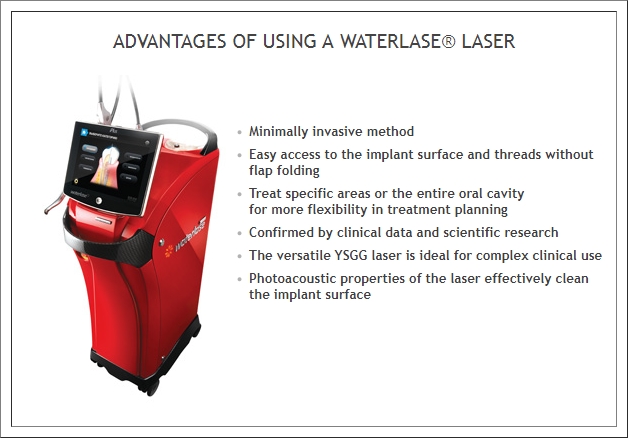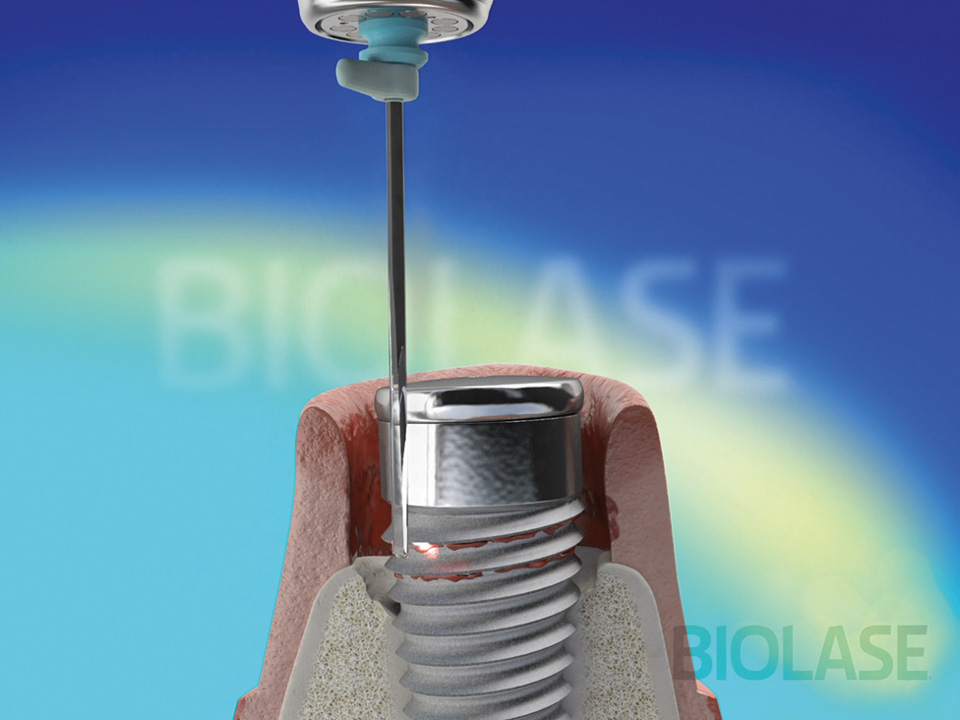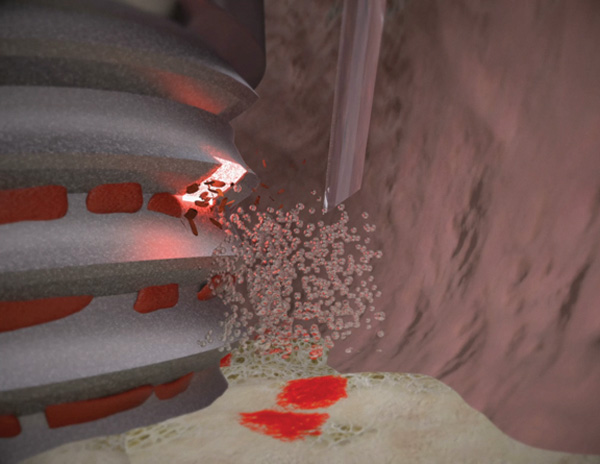The laser came to Russian dentistry in the early 2000s and today is no longer perceived as something revolutionary. It has become the standard for quality dental care, for which there are proven protocols and methods. Today we are talking about the protocol for the treatment of peri-implantitis.
CAUSES
Peri-implantitis is an infectious inflammation of the soft and hard tissues in the area of a dental implant. The source of inflammation is the pathogenic microflora on the surface of the implant, which causes resorption of bone tissue around the implant, it loses bone support. In case of peri-implantitis pathogenic microflora releases toxins, which harms the biological environment — soft and hard tissues — everything that surrounds the implant. Inflammation occurs, which causes severe tissue damage.
The main causes of the disease are poor hygienic care of teeth and implants, high consumption of sugars in food, bad habits (smoking, bruxism — clenching of teeth), lack of control over the implant by a doctor.
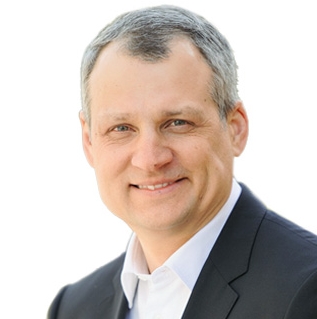
YAROSLAV FILATOV
Dentist, general practitioner, surgeon, orthopedist, implantologist, chief physician of the Laser Smile clinic, Samara
FORECASTS
Today, implantology is one of the most popular dental area. Considering that in recent years a huge number of implants have been installed in the world, effective and modern therapy of peri-implantitis as a disease is an important and urgent problem in dentistry.
The American Academy of Implant Dentistry estimates that about 3 million Americans have implants, an increase of 500,000 annually in the United States alone. Unfortunately, this means that the incidence of this disease is steadily increasing.

SOLUTION
For a long time, dentists could not find a solution to how to deal with the pathogenic flora on the surface of the implant. Microorganisms are so tightly adjusted to the surface of the implant that it was impossible to remove them without damaging the implant. With the advent of laser technologies, it became clear that at certain power parameters, laser radiation does not affect the titanium surface and, at the same time, very effectively removes the microflora — it decontaminates the implant surface.
In this case, biological tissues, absorbing laser radiation, receive powerful biostimulation, which improves cell regeneration in the postoperative period.
TREATMENT PROTOCOL
The REPAIR Implant™ protocol is the leading scientific method in the treatment of peri-implantitis. Using the Waterlase® hydrokinetic laser and patented Radial Firing Perio Tips™ (RFPT) and Side Firing Tips™ (SFT) with REPAIR Implant™ provides a safe and effective laser treatment protocol.
Stages of the treatment protocol
Stage 1. Preoperative. The patient undergoes a comprehensive examination, a detailed history is collected. The doctor’s task at the first stage is to assess the state of oral hygiene, the degree of the disease and the risks of treatment.
At this stage, professional oral hygiene is carried out, special attention is paid to the removal of dental plaque from the crown and abutment. If necessary, the superstructure is modified to eliminate the biomechanical overload of the implant.
Stage 2. Surgical. During this stage, the following steps are carried out:
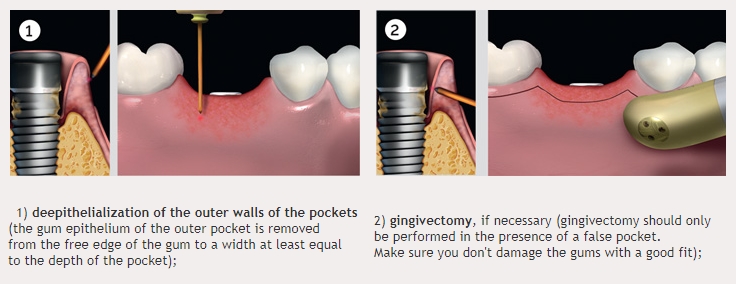
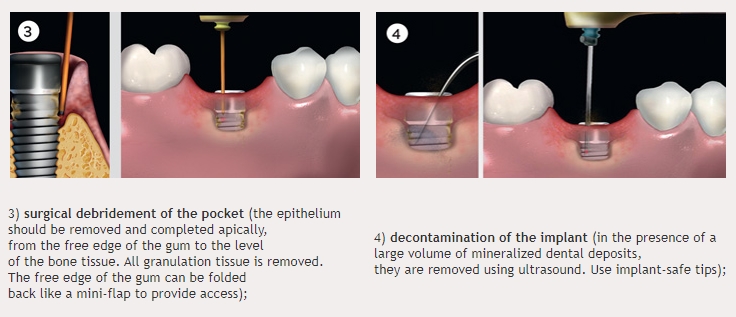
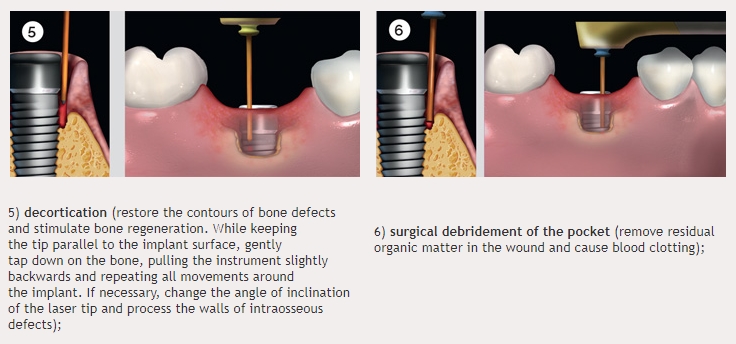

Surgical treatment is carried out using a special new side-scatter laser light guide (SFT) Waterlase. Laser energy gently removes necrotic tissue, infection, anaerobes from the implant surface and surrounding periodontal structures. The new light guide is ideal for safe and effective disinfection. Its 180° rotary handle and unique tapered design provide more flexibility for treating infected subgingival implant surfaces without flap retraction.
Stage 3. Postoperative. This period includes careful care of the teeth and interdental spaces, while the site of the operation is treated by the patient carefully and sparingly. For three months after the operation, it is not recommended to carry out drainage in the area of intervention.
At the moment of development of modern dentistry, the REPAIR™ protocol using the SFT light guide is an innovative solution for the treatment of all forms of peri-implantitis.
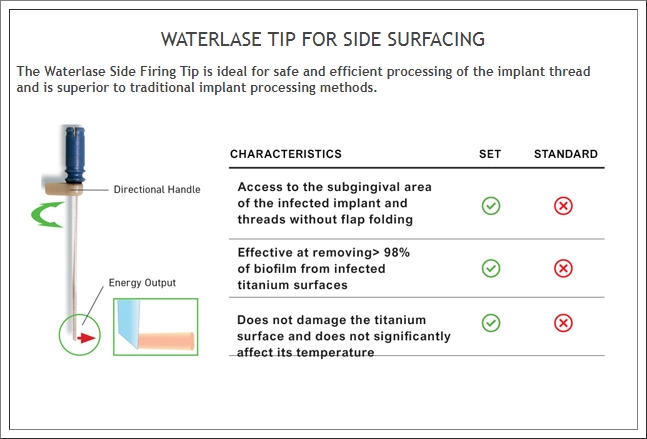
LASER EFFICIENCY
Excellent clinical results in the treatment of peri-implantitis have shown that the laser allows to achieve high efficiency of treatment, providing a reduction in surgical trauma and high-quality disinfection during the intervention. Treatment is carried out on an outpatient basis, without stress for the patient and discomfort associated with restrictions in food intake and lifestyle. It is important that the use of technology and protocol minimizes the likelihood of postoperative complications and shortens the treatment time.
